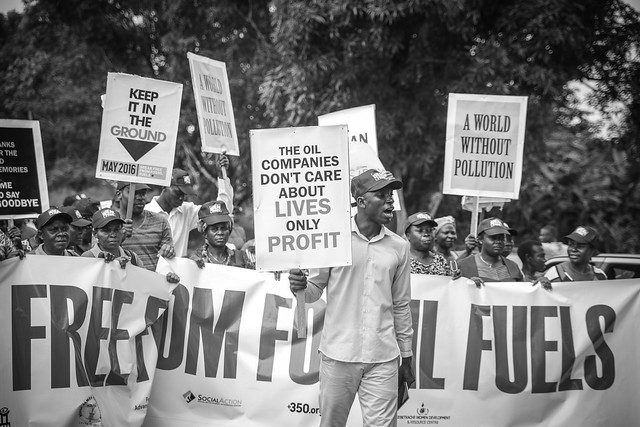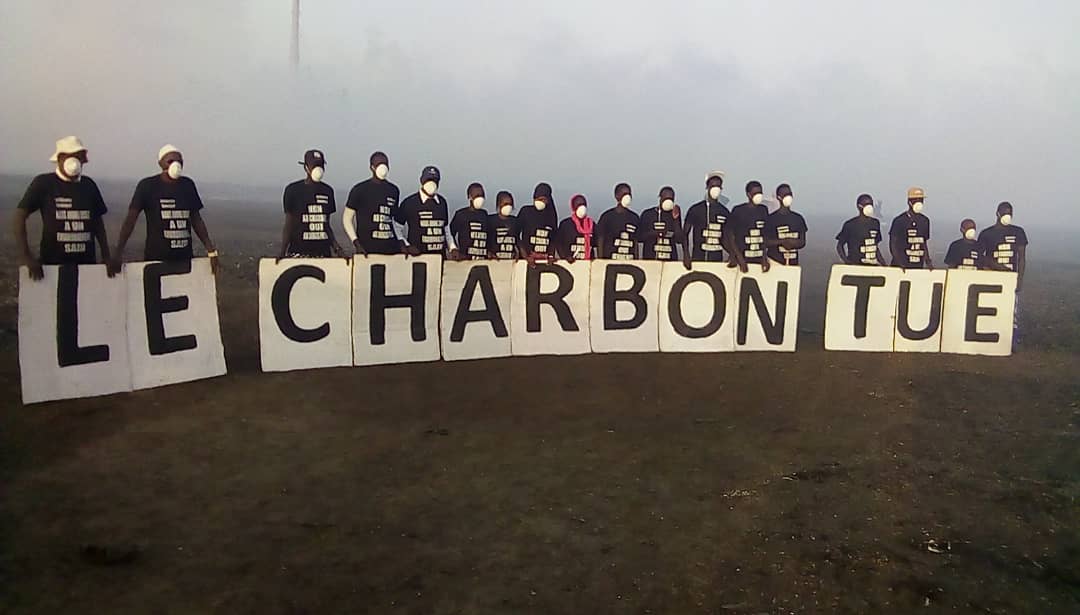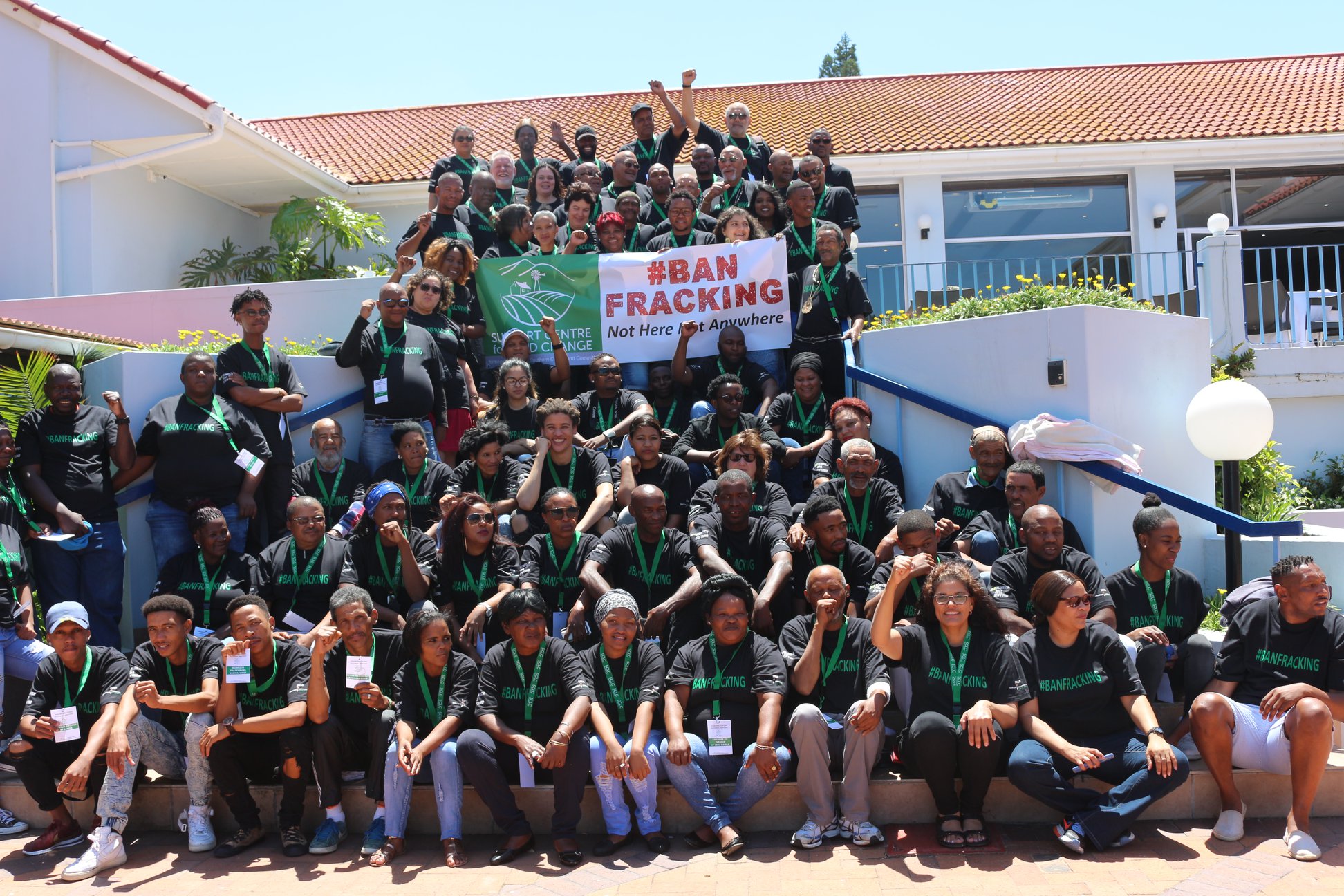We’re days away from rising up calling on our leaders to fight climate change.
We’ve seen throughout history that movements that promote progressive social change have been driven by ordinary people dedicated to leading when governments have failed. People power leading the way has become even more relevant as the effects of climate change have begun to unravel across Africa, as leaders across the length and breadth of the continent prop up the importation and exploitation of fossil fuels.
As part of Africa Day, on May 24-25 we will see the determination of people, in communities across Africa rise up against new fossil fuel exploration, and developments - showing leaders the way to fight climate change. So far there have been over 50 events registered across the continent calling on their leaders to commit to building a fossil free Africa that puts people and justice before profits.
The movement against new fossil fuel developments is global and extremely pertinent to the future of our planet. Here’s a snippet into what will be happening in Nigeria, Senegal and South Africa on the 25th:
- Nigeria: To mark the Afrika Day of Action, GIFSEP intends to mobilize at least 20 Senior Secondary Schools in Abuja to produce and deliver climate-conscious and justice messages on one parachute and other colourful paintings. This parachute and painting will be delivered through a march towards the parliament building asking the members of parliament to pass the climate bill and lead Nigeria on the road to climate justice.
- Senegal: A huge rally gathering at least 1500 citizens composed of youth, women, traditional chiefs, religious leaders, local authorities, CSOs and NGOs is planned in Bargny to denounce the Bargny coal plant project and to call the Senegalese President to demonstrate a stronger leadership role in fighting against climate change and promote renewables.
- South Africa: Communities affected by mining, and those in support of these communities, will be marching to the Union Buildings in Pretoria. A memorandum calling for a national ban on fracking in South Africa will be handed over to the President and to the Minister of the Department of Mineral Resources.
Our collective futures depends on us being able to seize this moment and work together to pushback against the fossil fuel industry fuelling the climate crisis and for long-lasting and meaningful change.
Africa uniting forces to challenge the fossil industry on May 25
Coal plant bi dou fi takke. This is the slogan hammered by the community in Bargny, a village located 30 km south from Dakar that the 350 Africa team recently met on the site where Senegal’s first coal plant has just been built.
Coal plant bi dou fi takke means 'the coal-fired power plant will not get launched here'. The completion of the plant did not affect the determination of the Bargny and Sendou communities who continue to oppose this project.
In Senegal as in Ivory Coast, Kenya, Nigeria and Mozambique where governments seem to be fond of coal-fired power stations, we are hearing and seeing this same strong feeling of resistance and opposition from communities, local groups, and civil society in general. Collectively, they denounce the so-called energy projects with disastrous social, health and environmental impacts.
Conscious of this fierce opposition from communities against the proliferation of coal-fired power plants on the continent, 350 Africa in collaboration with these same communities and regional partners is organising a Regional Day of Action called "Break Free from Fossil Fuels" on May 25.
On that day, communities, civil society groups and other activists will organise various mobilisation actions - from street walks to the community forums, field visits to affected sites, exhibitions and press conferences - all of them united by the same message : No to fossil fuels in Africa, targeting the existing and proposed fossil fuel projects on the continent.
Now more than ever, the time has come for Africa and its people to reject this type of obsolete energy, which is being phased out across the world. It is unanimously recognised for its major contribution to the ongoing climate crisis. Being the most vulnerable continent to climate impacts, it is inconceivable to consider a polluting, destructive and obsolete energy model in the name of development in Africa.
No, Africa does not need fossil fuels to meet its growing demand for energy. Africa has a wide range of renewable resources that can be used to boost its economy. This is the message that African activists are going to convey to their local and national leaders, as well as to international institutions like the African Development Bank that continues to fund coal projects on the continent.
The registration of events for Break Free from Fossil Fuels 2018 has already started and is still going on. We encourage you to register yours as soon as possible. It doesn’t matter at this stage if you don’t have a clear idea or plan in place - register your action and we’ll help you with the rest. We’ll encourage and help you plan powerful, public actions that pull the mask of respectability off the fossil fuel industry.






